Thousands of Ukrainians fleeing their homeland found refuge in London in 2022 through the UK government’s sponsorship scheme Homes for Ukraine.
As of 6 December the scheme, which initially asked UK residents to host Ukrainian refugees in their homes for six months, brought 14,114 Ukrainians to London and 107,061 to the UK.
Described by the government as “one of the fastest, biggest and most generous visa programmes in British history,” Homes for Ukraine was set up hurriedly to stem an unforeseeable refugee crisis.
While the scheme gave Ukrainians the right to work, receive benefits and access public services in the UK from their arrival, its early success in settling refugees relied as much on communities as it did on visas.
“So much we haven’t done, which I wish we could do.”
With a background in community sponsorship working with Syrian families, Tamara Joseph knew instinctively that, for all its ambition, Homes for Ukraine would not succeed without support from community organisations.
Tamara, who founded the group Homes for Ukraine Tufnell Park in April, said: “The government basically said anyone with a spare room can become a one-person resettlement agency all on their own, without training, help or support.
“I looked at the scheme and thought to myself that they had not put in place any information sharing, which I’d seen done for Syrian families, and there was also the safeguarding issue.
“It was really obvious that people were going to be bereaved while they were here. If you leave your husband behind, there’s a reasonable likelihood he could be killed in the first six months of the war.”
Tamara remembers prospective hosts being proactive, looking for matches online or through friends and submitting visa applications to the Home Office.
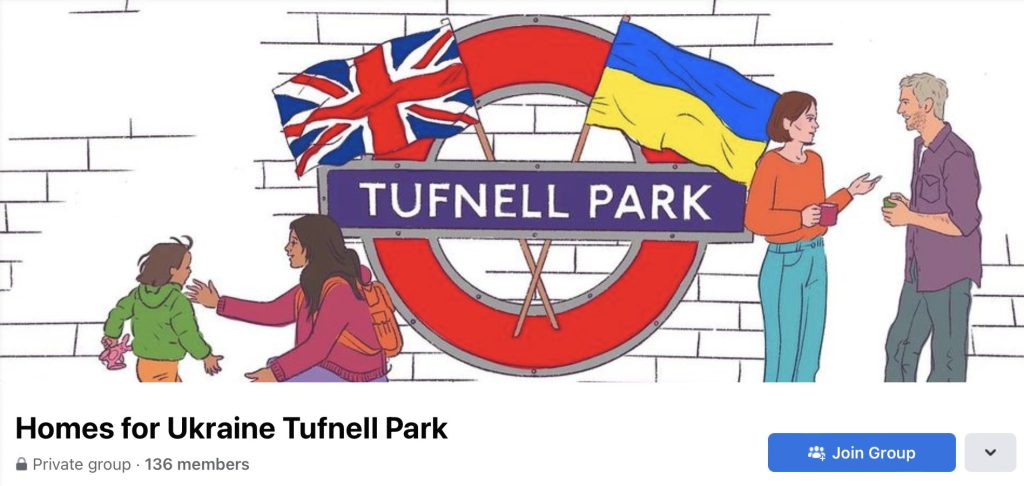
Through the Homes for Ukraine Tufnell Park Facebook and WhatsApp groups, further matches were made and, no less important, Tamara was able to anticipate and answer hosts’ questions.
She said: “What are the first four things you need to do when someone arrives? What kinds of things might you put in a welcome package?
“Why is it important that you apply straight away for Universal Credit? How can you claim the emergency £200 payment Ukrainian guests are meant to receive the minute they get here?
“We were able to share a lot of information before people started arriving.”
At least 200 Ukrainians have found a home in north London through Homes for Ukraine Tufnell Park, but the problem now is that hosting capacity has all but dried up.
Tamara added: “If you look around at organisations which were doing matching, a lot of them have stopped accepting applications because there’s no realistic prospect of matching them. Clearly the need for refuge is as great as ever, but we don’t have the hosts.
“There’s so much we haven’t done, which I wish we could do and so much still to do.”
“We weren’t going to do personality testing.”
Horrified by the invasion of Ukraine, semi-retired oboist Jeremy Polmear and wife and fellow musician Diana Ambache wasted no time in signing up to host through Homes for Ukraine.
Jeremy said: “Since I’m an older person, the idea of Russian tanks moving westward through Europe has been the great fear over the decades and finally they were actually doing it, so I really felt I wanted to do something.
“I also thought our lives were absolutely fine, perfectly comfortable and everything was nice and predictable, and it seemed to me that it was time we had a little change. All the signs pointed in the same direction.
“We knew we might get people who were difficult to live with and if that was the case then it would just be part of the project. We’d have to make it work somehow.
“As it turned out, however, Lia and Lana are not at all difficult to live with, they’re absolutely delightful.
“Our lives are the better for having them.”
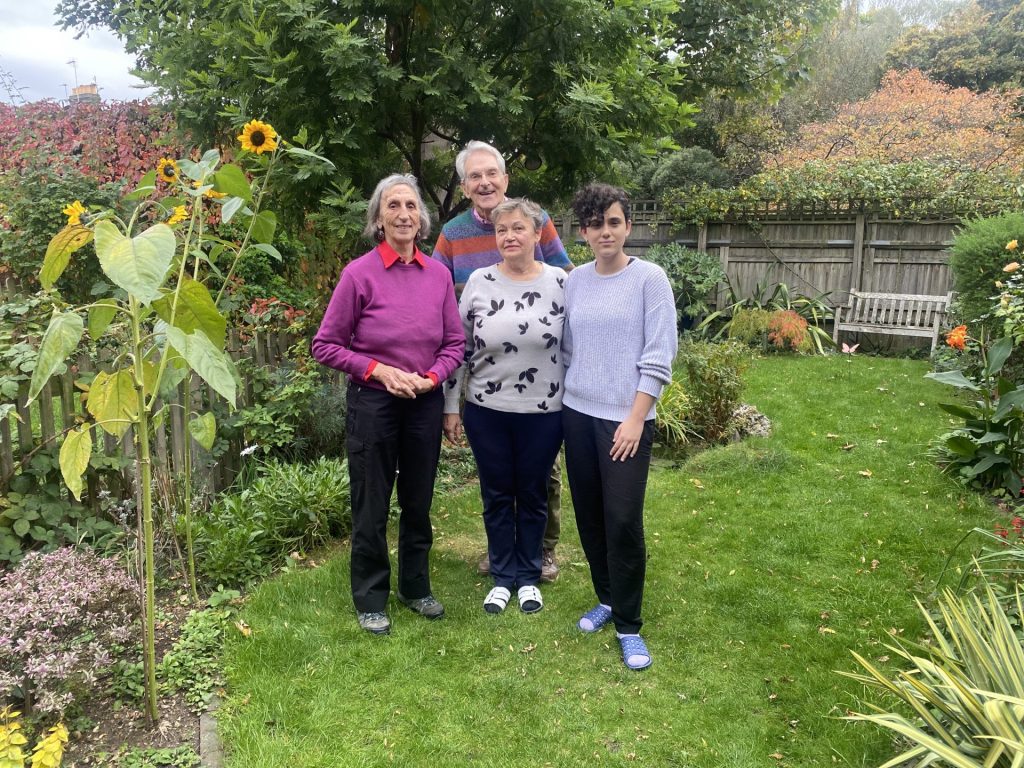
Applied Mathematics student Lia Makarova, 19, and her grandmother Lana Makarova, 65, fled Zaporizhzhia on 20 May, arriving at Jeremy and Diana’s home in Islington the next day.
Lia, who puts her fluency in English down to growing up watching old Doctor Who episodes, quickly got a job at a Hilton hotel as a night receptionist and her grandmother is learning English.
When asked why she thinks it’s worked out with their hosts, she said: “We are very lookalike personalities and none of us are drama queens, so it’s kind of easy.”
From the beginning, Jeremy and Diana thought the six-month commitment would be too short and agreed that they would block off a year to have guests staying with them.
Now, seven months on and the war showing no sign of slowing down, the couple remain committed to hosting.
Jeremy said: “I embrace the uncertainty and we’ll keep on going as long as we need to.”
“We’re in our honeymoon period.”
The constant explosions causing their windows to tremble throughout the night left Alla Megeria, 39, and her 11-year-old son Nikita with no choice but to flee Kyiv.
“We were sitting in the car getting ready to leave and when we started moving we saw two rockets in the sky. It was very scary and we understood we had made the right decision,” Alla said.
The 700 km journey to the Polish border was slow and crossing over even worse with waits of up to 12 hours.
Leaving her husband in Ukraine, Alla took Nikita to Slovakia where they had access to an apartment before coming to London to live with Anita Peleg in Barnet on 11 August.
“Those who took in Ukrainians very early on are now at a difficult stage where they’re wondering what’s next, but I’m not. We’re in our honeymoon period,” Anita said.
The child of Holocaust survivors and the founder of the charity Generation2Generation, which provides Holocaust education through eyewitness testimony, Anita started looking for a family to sponsor through an acquaintance working in a refugee centre soon after the war started.
She said: “I just felt very keenly the need to do something, particularly because my mum’s hometown, which was part of Czechoslovakia when she was growing up, is now part of Ukraine.
“I think we’re lucky, we’re a well-matched family. For my husband and I, it’s like a breath of fresh air and we’re so glad that Alla and Nikita feel comfortable here.”
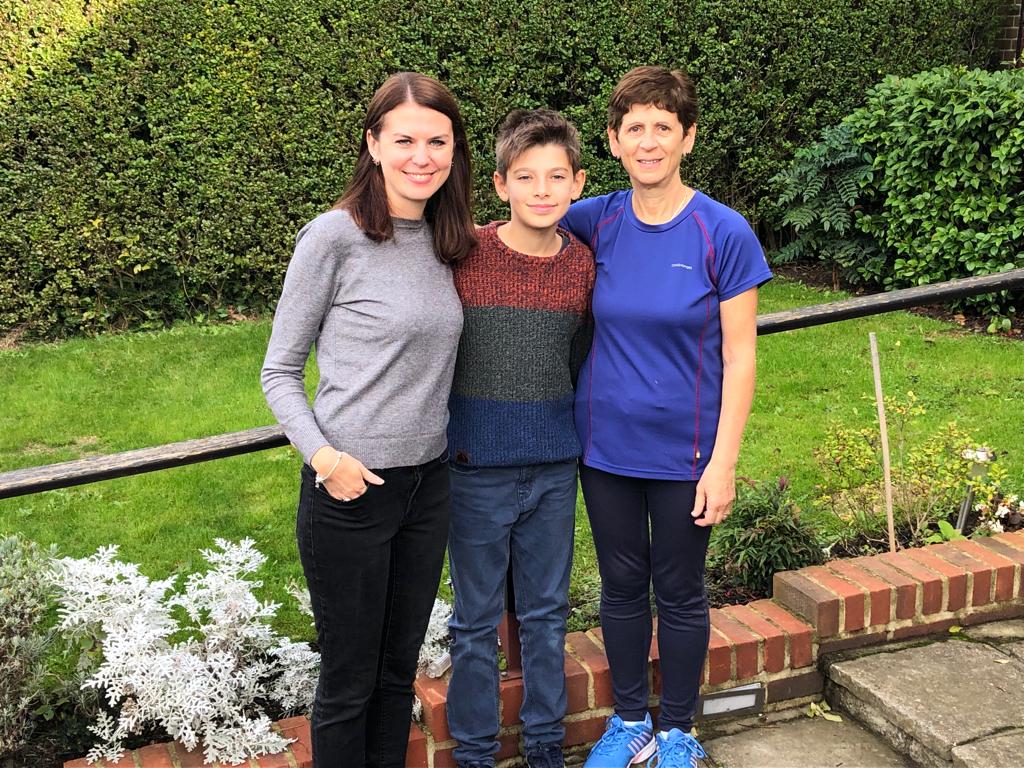
“Hope never dies.”
Alisa Kyrychok, 42, and her teenage daughters, Anhelina, 14, and Yeva, 17, witnessed the first four hours of explosions in Kyiv before leaving for Romania.
On 14 April, they moved in with hosts Ruth and Ivan Scheer in Barnet.
Ruth said: “As bombs started to fall on 24 February we were obviously watching the news in horror like everyone else.
“I saw the trains with refugees going to Berlin on the news and I said to my husband, ‘If the trains start coming into Waterloo, can we be those people holding up the signs?’”
With a table that seats ten, everyone sits down for dinner together most nights.
“When I’m making salad, I’m only thinking about salad. At that time the salad is the biggest problem. It’s good for me,” said Alisa, who runs a digital marketing agency.
With Anhelina and Yeva enrolled in schools, Ruth is in no hurry for the Kyrychoks to leave, but the girls, of course, want to go home.
Yeva said: “We still have hope, and we don’t see any other way to end this war than for us to win. I just don’t want to think about what happens if Russia wins. If Ukraine breaks, what will break next? Poland? Russia grabbed our land and killed our people and who will be next?
“I asked a friend what they would write or draw out of everything and they said ‘hope never dies’.”
Ongoing support
While the initial six-month hosting arrangement has now come to an end in many cases, most hosts intend to provide accommodation for 12 months (27%) or longer than 12 months (27%) according to the recent Homes for Ukraine Sponsor Survey Follow-up published by the Office for National Statistics on 16 December.
More than half of past hosts (52%), no longer providing accommodation, are continuing to provide support to their guests who have moved on, including friendship (78%), emotional support (57%) and help settling into the local area (37%).
Featured image credit: Chesdovi via Wikimedia Commons – under CC BY 2.5 license
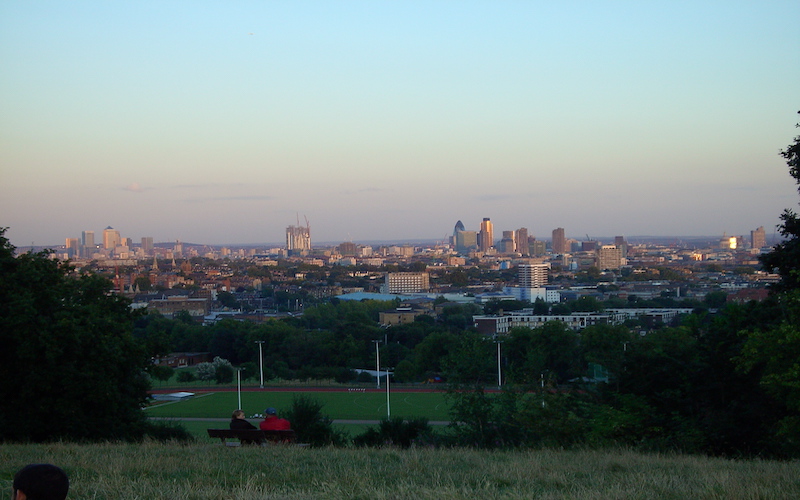

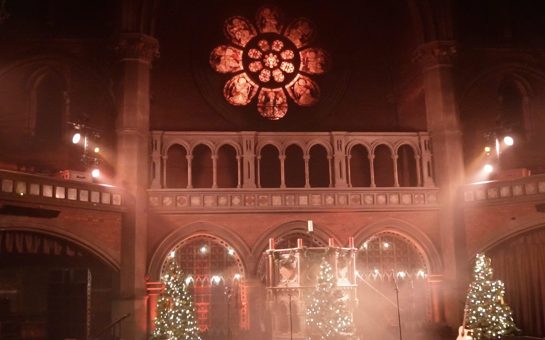

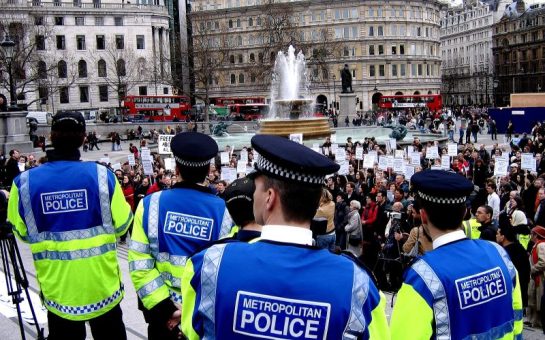
Join the discussion